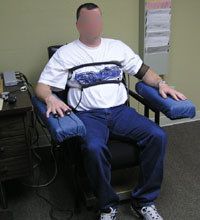SANTA MONICA— In March of 1995, Dale R. Hurd was convicted of the first-degree murder of his wife Beatrice. This trial was the second, after the first resulted in a hung jury and an eventual mistrial. This conviction was a reflection of the jury’s belief that Hurd killed his wife for financial gain, and he was sentenced to life in prison as well as an additional charge for the use of a firearm. After over 15 years of appeals, Hurd’s conviction was finally overturned.
At the time of her death in April of 1993, Dale and his wife had been married for eight years. On April 1, Bea Hurd served her husband with divorce papers. Two weeks later, on April 16, Bea was at Dale’s house collecting their children when the incident occurred.
At his trial, Hurd testified that his wife arrived at his home that day noticeably shaken up by the Rodney King trial and possibility of rioting. Dale testified that she wanted to learn to use a gun for protection, and while he was attempting to demonstrate how to operate the firearm, it accidentally discharged hitting Bea in the chest. Bea subsequently died from the gun shot.
After finding Hurd at the scene, sitting outside the house by Bea’s body, Santa Monica police took him into custody. During questioning, the detectives asked Hurd to take a polygraph, which he refused to do, citing that he believed they were an unreliable source. They also asked him to demonstrate how the incident occurred; he refused to the reenactment as well.
Though Hurd was convicted of the first-degree murder of his wife, he maintained his innocence throughout. Through a series of appeals, he has argued that his refusals to perform the reenactment and take the polygraph were the deciding factors in his guilty conviction and that this is unconstitutional.
In the case review of his most recent appeal it states, “Hurd further argued that his repeated refusals to submit to a polygraph or reenact the shooting were invocations of his constitutional right to remain silent and that his responses to that line of questioning were therefore inadmissible.” The case opinion goes on to say that, his silence cannot be used against him; Miranda rights are an acknowledgment of this constitutional guarantee. Even though the prosecutor argued that Dale did not embrace his Miranda rights entirely, the court found that Dale’s silence could not be used against him and that the evidence in the case did not contradict his version of the incident. As such, the court overturned his conviction and issued a writ of habeas corpus demanding the state to release Hurd. The state can choose to retry him within a reasonable amount of time.






